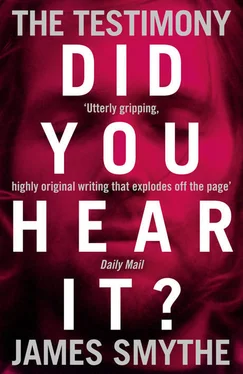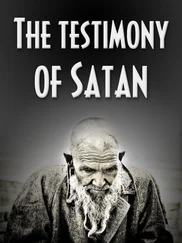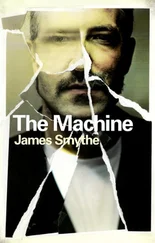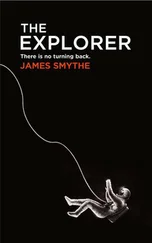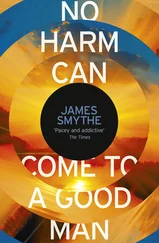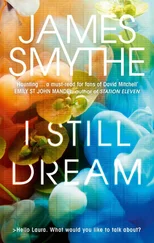When we reached the house it was morning, and we were halfway up a mountain without a proper road on it, just a tarmac path between two hedges. I looked down at Wales, the clearest day I could remember, the most beautiful view out over the sea, the hills, the city – Cardiff? Newport? I couldn’t tell which – twinkling away in the distance. Piers’ parents’ house was at the top of the hill, so we ploughed on. It was quaint, but better than that word suggests; all the luxuries of the modern age, along with some older touches. And an Aga! It was quiet in there, and cold, so Piers went and fetched logs and set the fire going, and we turned the Aga on, sat in front of it, boiled water to add to the tea bags that Piers decided were one of the emergency provisions we had needed to bring with us. How long has it been since you’ve been here? I asked him, and he said, Too long.
In the garden there was a hutch, for chickens, and a bit of cornered-off soil for veg. Nothing growing there, of course, but, in time. And, an hour after we turned up, a cat appeared on the doorstep, so Piers fed her some of the tuna we’d brought along. Really, I couldn’t believe my luck.
Meredith Lieberstein, retiree, New York City
We drove up to Rochester, because it was away from any danger. The town was next-to-normal, apart from the people in the streets. We still, even though we all have a TV, we still do that thing of standing around the outside of shops and watching their sets, as a community. What’s happened? I asked a group of girls, and they said, It’s all over, we guess. What is? Everything, they said. The bombs have stopped, the war is over, the illness has stopped. David didn’t react, but I started crying, because it felt so solid . We had a drink in a diner, opened (the owner told us) for the first time in days. I bought David a Coke, and we watched the news, that awful anchor from Fox that Leonard used to hate having uprooted to Pittsburgh or Pennsylvania, another city, same awful, arrogant man; but he had the best news. He spoke about how there were six or seven places across the US that were designated as exclusion zones , said that nobody could go near them. One of them was New York City, one of them Washington, DC. He spoke about how many people were estimated as having died, but clarified the numbers with provisos – There are numbers still coming in, especially from abroad, and many of those people were sick prior to the sickness – and he spoke about landmarks that were destroyed. He showed the last video from the terrorists then, saying that it just arrived in the studio. He looked so scared before they played it that I even believed him.
Tom Gibson, news anchor, New York City
The DVD arrived, hand-delivered. Security here was nothing like it was in New York, so nobody saw who dropped it off, and they didn’t have cameras on the drop-box out front, so it was anybody’s guess. It was that same terrorist, same cave, same camera, and he spoke slowly. We have been told to stop attacking you, he said. We have punished you for your sins, and you have learned your lesson. The next time you parade false Gods to the world with your science, your tricks, we will strike you from the face of the earth. He looked serious, but scared, as scared as we were, and ill; his eyes were almost black, and not in an evil man way. In a tired, not sleeping, pained way.
Ladies and gentlemen, I said, we have clarification that it’s over. It didn’t matter that the video didn’t mesh with what the government had said, that they had killed everybody, or captured them; it didn’t matter that the video didn’t say who had told them to stop attacking us, their government or their terror cell or, you know, The Broadcast , maybe; what mattered was that it was all done . We had that relief then, across the country, both that it was over, and that he was definitely confessing to the sickness, to whatever was causing it. Because, it ended when he said that it was over, so that made sense; they caused it. You need a confession, because it’s as good as proof, right?
Meredith Lieberstein, retiree, New York City
When we had finished the drinks – and watched nearly an hour of interviews with people on the streets around the country, all so happy, so glad that this was all over – we left the café. We should just drive for a while, I said to David, and so we set off out of the town. I asked him questions as we went, but he wouldn’t answer them properly, darting around them. Do you have a family? I asked, and he said, Yes, but then didn’t offer any more. I didn’t want to push him.
After a fashion we were at the edge of the lake, and I said that I wanted to see it. It feels like a new start, I said, and David smiled. I’ll be along, he said, so I went to the shoreline. There was a boat out, bobbing on the waves; some people on the deck. Hello! I shouted, Hello! It’s over, I yelled, because I thought that they might want to know. They waved back, and I saw the woman beckon me aboard. The man climbed into a little rower that they had tied to the back, started to come toward the shore, so I shouted for him to hang on, ran back to fetch David. But David was gone; his bag, his placard, everything. I don’t know where he went. I locked the car, took my bag with me, went back to the shoreline, and the man introduced himself. I’m Andrew, he said, and you have no idea how good it is to see you.
Andrew Brubaker, White House Chief of Staff, Washington, DC
Livvy and I sat on the deck and watched the cloud mingle with other clouds that had started to form around it, and we listened as an automated voice – like something from the Second World War, sometime back then – as the voice told us where we could and couldn’t go. Six areas across the US had been declared as uninhabitable for the foreseeable, including New York City and DC. What’s that they say? Livvy said, You can’t go home again? Well, we really can’t. I know, I said, this is it, I think. This is where we’re staying.
Then we saw Meredith, on the shore, and she told us that it was all over, that it had ended, and we were safe again. Didn’t change anything: we weren’t going anywhere.
Mark Kirkman, unemployed, Boston
When they knew there was no way they were going to land in New York, all ships – there were four of them on the Atlantic, making their way over from Europe – were told to dock down the coast, in Norfolk, Virginia. We arrived there a few hours before the ship did, and Joseph and I waited on the dock, watched the waves. The supervisor there said that it hadn’t been used for ships as big as ocean-liners for years, because everybody used to go in through New York. They wanted to see her as they arrived, he told us. We used to be US-only, schooners mostly, so we’re undermanned. And we lost some of the crew as well. I didn’t say anything to that, because everybody had lost somebody. It had become this thing where we all knew that everybody else was grieving, but moving on; the usual stuff you said when people had relatives or family that were dead. No more, Sorry for your loss; it was just taken as a given. When the ship appeared – amazing day, because we’d had a run of them, a run where there weren’t clouds in the sky, where you could see for miles and miles – we watched as the crew ran around to get everything ready. We both helped, along with a few others who were waiting for the ship. The crowd of relatives and loved ones went back to the diner, just off the road, and they all cheered when the ship pulled in. They lowered the cargo entrance, because that was the easiest way to dock it, and we watched as the passengers slid off, thousands of them, but none of them pushing, probably because of tiredness, hunger. Joseph said something about how dirty they looked – I didn’t know they could look that awful after only a week! he said – but I barely noticed. I was trying to find Ally and Katy, and I knew I’d be mostly relying on them to recognize me, because all I’d ever seen of them was that small picture Ally sent me before they got on the ship. Katy saw me first, and I caught her waving as she walked toward me, and then Ally, who looked horrified that we were there. I haven’t got any make-up on, and look at me! Jesus Christ! She kept hiding her face away and making this, like, this growling noise, embarrassed, because, I don’t know, she was nervous. We hadn’t met, and we’d only spoken a few times, but there was… I don’t want to call it an expectation, but that’s what it was, I think. That we would get on? That we’d connect?
Читать дальше
Конец ознакомительного отрывка
Купить книгу
